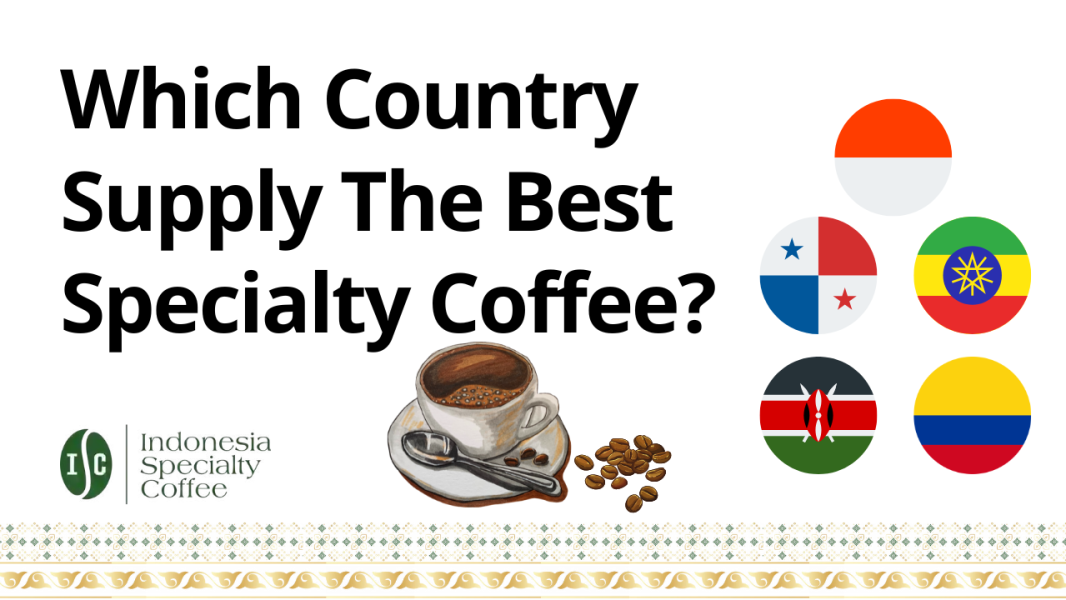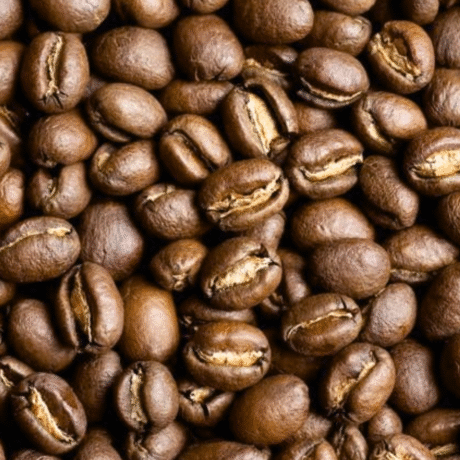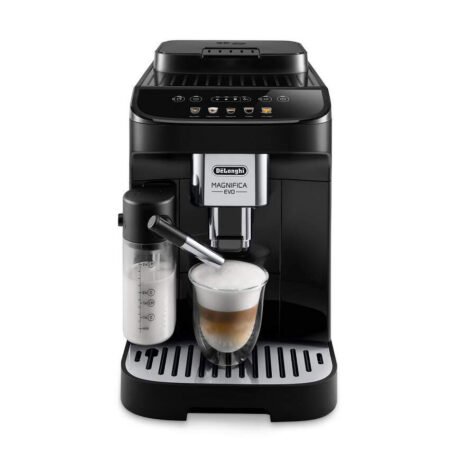The Quest for the Perfect Bean: Unpacking the World’s Top Specialty Coffee Origins
Which Country Supply The Best Specialty Coffee? – For the discerning coffee lover, the journey from bean to cup is a meticulous one, marked by a relentless pursuit of flavor and quality. Specialty coffee, defined by its exceptional score of 80 points or above by the Specialty Coffee Association (SCA), represents the pinnacle of this pursuit. But the question remains: where in the world can one find these exceptional beans? While “best” remains a subjective term, certain countries consistently rise to the top, each boasting unique characteristics shaped by a complex interplay of cultivar, geography, and processing methods.
Ethiopia: The Cradle of Coffee and a Kaleidoscope of Flavors
Often hailed as the birthplace of coffee, Ethiopia offers an unparalleled diversity of flavor profiles. Its unique position as the genetic home of Arabica means a vast array of indigenous cultivars thrive across its varied landscapes. Regions like Yirgacheffe, nestled in the Gedeo Zone, are renowned for their delicate floral notes (think jasmine and bergamot) and bright, tea-like acidity, often scoring high due to their clean, washed processing. Further south, Sidamo produces coffees with a fruitier profile, hinting at blueberry and citrus, while the eastern highlands of Harrar yield bold, winey, and sometimes even mocha-toned beans, often processed naturally, allowing the fruit’s sweetness to fully develop. The sheer variety stemming from Ethiopia’s ancient coffee heritage and diverse processing techniques consistently earns it a top spot in the specialty coffee world.
Colombia: Balanced Excellence Across Diverse Terrains
Colombia has long been synonymous with high-quality coffee, and its specialty offerings are no exception. The country’s diverse geography, with its towering Andean ranges and varying microclimates, allows for a wide spectrum of flavor profiles. Typically, Colombian specialty coffees exhibit a balanced cup, characterized by medium body, bright acidity, and notes of caramel, chocolate, and citrus fruits. Regions like Antioquia, Huila, and Tolima are celebrated for their consistently high scores achieved through meticulous washed processing, ensuring a clean and bright expression of the bean’s inherent qualities. While Colombia cultivates various Arabica cultivars, including Typica, Bourbon, and Castillo, the focus on quality control from farm to export ensures a reliably excellent cup.
Panama: The Reign of Geisha and Micro-Lot Marvels
While a smaller producer compared to giants like Ethiopia and Colombia, Panama has carved a niche for itself at the very top of the specialty coffee hierarchy, largely thanks to the celebrated Geisha (or Gesha) cultivar. Grown at high altitudes in regions like Boquete and Volcán, Panamanian Geisha coffees are legendary for their incredibly complex and delicate aromatics and flavors – think floral bouquets, vibrant citrus, and hints of Earl Grey tea. These meticulously cultivated and often washed-processed beans regularly achieve some of the highest scores in the world and command astronomical prices at auctions. Beyond Geisha, Panamanian producers are also excelling with other cultivars, focusing on innovative processing methods in micro-lots that showcase the country’s dedication to exceptional quality.
Kenya: Vibrant Acidity and Bold Flavors from the Highlands
Kenyan specialty coffee is instantly recognizable for its bright, often pronounced acidity and complex flavor notes of blackcurrant, citrus, and even wine. Grown in the high-altitude regions around Mount Kenya, particularly in Nyeri, Kiambu, and Murang’a, Kenyan coffees benefit from fertile volcanic soils and a unique double-washed processing method. This meticulous process contributes to the coffee’s clean profile and intense flavors, often resulting in scores well into the 80s. The dominant cultivars, SL28 and SL34, specifically developed for Kenyan growing conditions, are highly prized for their distinct and vibrant character.
Indonesia: A Rising Star, Redefining Expectations – Spotlight on Gayo
Indonesia, the world’s fourth-largest coffee producer, is far from underrated in the specialty coffee world. While historically known for its bold, earthy, and full-bodied coffees, often achieved through the traditional wet-hulled (“Giling Basah”) process, the Indonesian specialty scene is experiencing a vibrant transformation. This evolution is particularly evident in regions like Aceh, home to the revered Gayo Highlands.
The Gayo region, characterized by its volcanic soil and high altitudes (typically 1,200 to 1,800 meters above sea level), provides an ideal environment for Arabica cultivation. Beyond the traditional wet-hulled method, Gayo farmers are increasingly experimenting with alternative processing techniques to unlock an even wider spectrum of flavors.
While Indonesia cultivates various Arabica cultivars, including Ateng, Bourbon, Catimor, P88, and more, the focus on quality control from farm to export ensures a reliably excellent cup.
At SpecialtyCoffee.id, we are proud to showcase the pinnacle of Indonesian coffee excellence, with a particular focus on the innovative offerings from Gayo:
Gayo Natural Coffee

Moving beyond the classic Giling Basah, Gayo Natural processed coffees are dried with the coffee cherry intact, allowing the fruit’s sugars to infuse the bean. This results in incredibly complex and often vibrant flavor profiles. Our micro-lots of Gayo Natural Coffee can achieve exceptional SCA scores, reaching up to 87 points, delivering a cup bursting with notes of berry, cherry, sugary sweetness, and a delightful wine-like complexity. The natural process amplifies the inherent fruitiness and creates a fuller body, making for a truly memorable experience.
Gayo Honey Coffee
The Honey process (also known as Pulped Natural) strikes a balance between washed and natural methods. After depulping, some or all of the mucilage (the sticky, honey-like layer) is left on the bean to dry. This careful fermentation on the drying beds imparts a distinct sweetness and body to the coffee. Our Gayo Honey Coffee micro-lots, also scoring up to 87 points, offer a harmonious blend of fruity brightness, chocolaty undertones, and a luscious honey note, often with a clean, high body and a pleasant aftertaste. This method beautifully highlights the inherent sweetness of the Gayo Arabica cultivars.
The commitment of Gayo farmers to meticulous cultivation, experimental processing, and strict quality control is what allows these micro-lot productions to achieve such high scores. These are not just coffees; they are a testament to the dedication of Indonesian producers to push the boundaries of flavor and quality. The recent successes of Indonesian baristas and brewers on the global stage further underscore the nation’s rising prominence and the incredible potential within its specialty coffee landscape.
The Intertwined Factors of Excellence
The consistent quality of specialty coffee from these top-producing countries is not accidental. It’s a result of a delicate dance between several key factors:
- Cultivar: The genetic makeup of the coffee plant significantly influences potential flavor. Specific cultivars thrive in certain environments and exhibit unique characteristics.
- Geography: Altitude, climate, rainfall, and soil composition (terroir) play a crucial role in the development of the coffee bean’s flavor compounds. Higher altitudes, for example, often lead to denser beans with more complex flavors.
- Processing: The method used to remove the cherry flesh from the bean (washed, natural, honey, etc.) dramatically impacts the final taste. Washed processing typically results in cleaner, brighter coffees, while natural processing can enhance fruitiness and sweetness.
The Journey Continues
When asking “Which country supplies the best specialty coffee?“, it’s crucial to understand that there isn’t a single, definitive answer. The concept of “best” in specialty coffee is deeply personal and multifaceted. While certain countries like Panama (especially for its exquisite Geisha), Ethiopia (for its unparalleled diversity and ancient varietals), and Kenya (for its vibrant, complex acidity) consistently produce coffees that achieve the highest SCA scores and command premium prices, the “best” cup ultimately depends on individual taste preferences.
Some may prefer the bright, floral notes of an Ethiopian Yirgacheffe, others the balanced sweetness of a Colombian, or the unique, full-bodied character of a well-processed Indonesian. Factors like ideal geographic conditions, specific coffee cultivars, meticulous processing methods, and the dedication of farmers and roasters all contribute to the exceptional quality found across numerous origins. Therefore, the “best” country is the one that consistently delivers the flavor profile and quality attributes that most resonate with your personal palate, making the exploration of various origins a truly rewarding journey.






